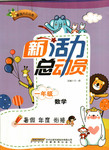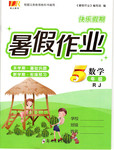题目内容
阅读理解。
Zhao Zhangguang was born in 1943 to a peasant's family in Niyang village in Yueqing county, Zhejiang
Province. His family's income made it necessary for him to give up his study and take up farming when only
in the second year of junjor middle school.
In 1969 Zhao suffered from a skin disease and during the following two years he visited doctors in
Hangzhou, the capital of the province. While in Hangzhou he learnt enough knowledge of medicine to become
a "village doctor". Later he opened a health centre in his village and treated patients with common skin diseases.
Many people in his village and surrounding areas suffered from baldness. A young woman teacher in his
village was one such case. Always jeered (嘲笑) at by her pupils, her-self esteem (自尊) was seriously injured
and she quit (退职) her job, she locked herself away at home for seven years even refusing to visit her own
parents. Many cases and others kept nagging (唠叨) at Zhao and he determined to find a treatment for baldness
and bring back happiness to his patients.
After four years of hard work. Zhao sucessfully produced the"101" hair tonic. Its effective results have been widely recognized.
Province. His family's income made it necessary for him to give up his study and take up farming when only
in the second year of junjor middle school.
In 1969 Zhao suffered from a skin disease and during the following two years he visited doctors in
Hangzhou, the capital of the province. While in Hangzhou he learnt enough knowledge of medicine to become
a "village doctor". Later he opened a health centre in his village and treated patients with common skin diseases.
Many people in his village and surrounding areas suffered from baldness. A young woman teacher in his
village was one such case. Always jeered (嘲笑) at by her pupils, her-self esteem (自尊) was seriously injured
and she quit (退职) her job, she locked herself away at home for seven years even refusing to visit her own
parents. Many cases and others kept nagging (唠叨) at Zhao and he determined to find a treatment for baldness
and bring back happiness to his patients.
After four years of hard work. Zhao sucessfully produced the"101" hair tonic. Its effective results have been widely recognized.
1. Zhao gave up his studies in a junior middle school because of _____.
[ ]
A: skin disease
B: learning to be a doctor
C: farming at home
D: poor family
B: learning to be a doctor
C: farming at home
D: poor family
2. The young teacher was afraid to see anybody because ____.
[ ]
A: her family's income was too poor
B: she has many mischievous pupils
C: no hair was on her head
D: Zhao was her husband
B: she has many mischievous pupils
C: no hair was on her head
D: Zhao was her husband
3. Zhao made his mark from a poor young man to a village doctor, further to an inventor of drug _____.
[ ]
A: by his father
B: through years of hard work.
C: with the aid of a young woman teacher
D: for his high schooling
B: through years of hard work.
C: with the aid of a young woman teacher
D: for his high schooling
4. The "101" hair tonic is _____.
[ ]
A: a barber's tool
B: sort of surgeon's instrument
C: a book about hair
D: a kind of drugs for baldness
B: sort of surgeon's instrument
C: a book about hair
D: a kind of drugs for baldness
5. The best title of the passage is _____.
[ ]
A: Zhao Zhangguang And The "101" Hair Tonic
B: Medicine For A Disease
C: A Peasant Boy And His Invention
D: From A Patient to A Doctor
B: Medicine For A Disease
C: A Peasant Boy And His Invention
D: From A Patient to A Doctor
1. D 2. C 3. B 4. D 5. A

练习册系列答案
 新活力总动员暑系列答案
新活力总动员暑系列答案 龙人图书快乐假期暑假作业郑州大学出版社系列答案
龙人图书快乐假期暑假作业郑州大学出版社系列答案
相关题目